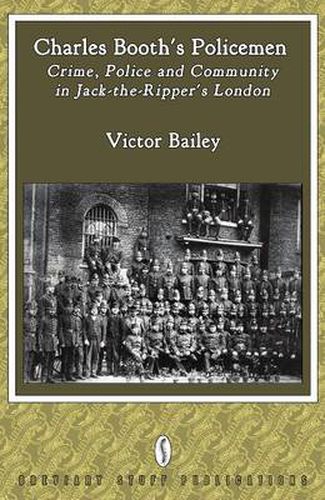Readings Newsletter
Become a Readings Member to make your shopping experience even easier.
Sign in or sign up for free!
You’re not far away from qualifying for FREE standard shipping within Australia
You’ve qualified for FREE standard shipping within Australia
The cart is loading…






This title is printed to order. This book may have been self-published. If so, we cannot guarantee the quality of the content. In the main most books will have gone through the editing process however some may not. We therefore suggest that you be aware of this before ordering this book. If in doubt check either the author or publisher’s details as we are unable to accept any returns unless they are faulty. Please contact us if you have any questions.
What explains the law-abidingness of late Victorian England? A number of modern historians contend that the answer lies with the effectiveness of policing, and with the imposition of a ‘policeman-state’ in Victorian and Edwardian England. Exploiting the vast archive that Charles Booth amassed for his leviathan social investigation to explore the social order of London’s East End, Life and Labour of the People in London, this volume takes issue with this answer. The East End was notorious as a region of unalleviated poverty, crime and immorality, the district where the issue of large-scale Jewish immigration was first confronted, and where Jack-the-Ripper found his victims. Victor Bailey reveals that historians have overestimated the extent to which policemen were able or willing to intervene in the daily behaviour of inhabitants to suppress law breaking. He shows that the commission and repression of crime were linked not only to the structures of law enforcement but also to levels of community solidarity, associational life, family integration, and parental authority. Social order was a function less of policing than of a complex combination of informal family and community sanctions, the mixed welfare of charity and state support, the new board schools, slum clearance, and the negotiated justice of the magistrates’ courts. The conclusions should lead us to question the role of the state in the making of social order, and to reinstate the force of informal social sanctioning.
$9.00 standard shipping within Australia
FREE standard shipping within Australia for orders over $100.00
Express & International shipping calculated at checkout
This title is printed to order. This book may have been self-published. If so, we cannot guarantee the quality of the content. In the main most books will have gone through the editing process however some may not. We therefore suggest that you be aware of this before ordering this book. If in doubt check either the author or publisher’s details as we are unable to accept any returns unless they are faulty. Please contact us if you have any questions.
What explains the law-abidingness of late Victorian England? A number of modern historians contend that the answer lies with the effectiveness of policing, and with the imposition of a ‘policeman-state’ in Victorian and Edwardian England. Exploiting the vast archive that Charles Booth amassed for his leviathan social investigation to explore the social order of London’s East End, Life and Labour of the People in London, this volume takes issue with this answer. The East End was notorious as a region of unalleviated poverty, crime and immorality, the district where the issue of large-scale Jewish immigration was first confronted, and where Jack-the-Ripper found his victims. Victor Bailey reveals that historians have overestimated the extent to which policemen were able or willing to intervene in the daily behaviour of inhabitants to suppress law breaking. He shows that the commission and repression of crime were linked not only to the structures of law enforcement but also to levels of community solidarity, associational life, family integration, and parental authority. Social order was a function less of policing than of a complex combination of informal family and community sanctions, the mixed welfare of charity and state support, the new board schools, slum clearance, and the negotiated justice of the magistrates’ courts. The conclusions should lead us to question the role of the state in the making of social order, and to reinstate the force of informal social sanctioning.